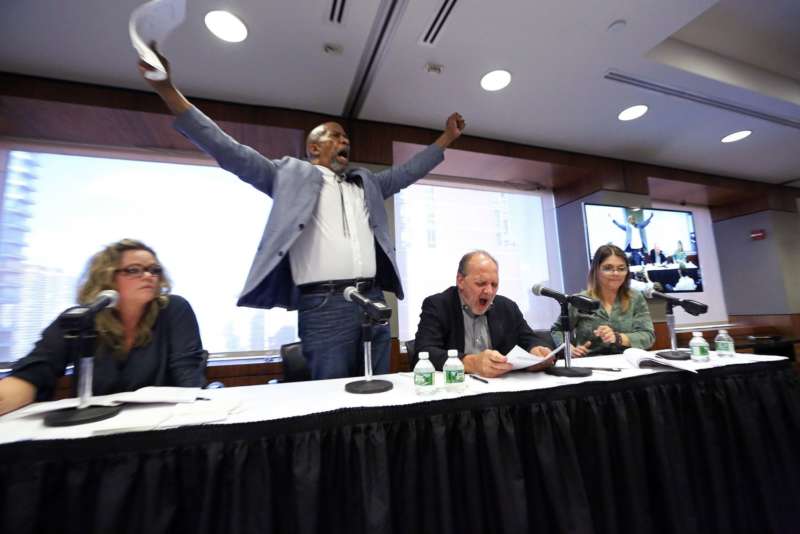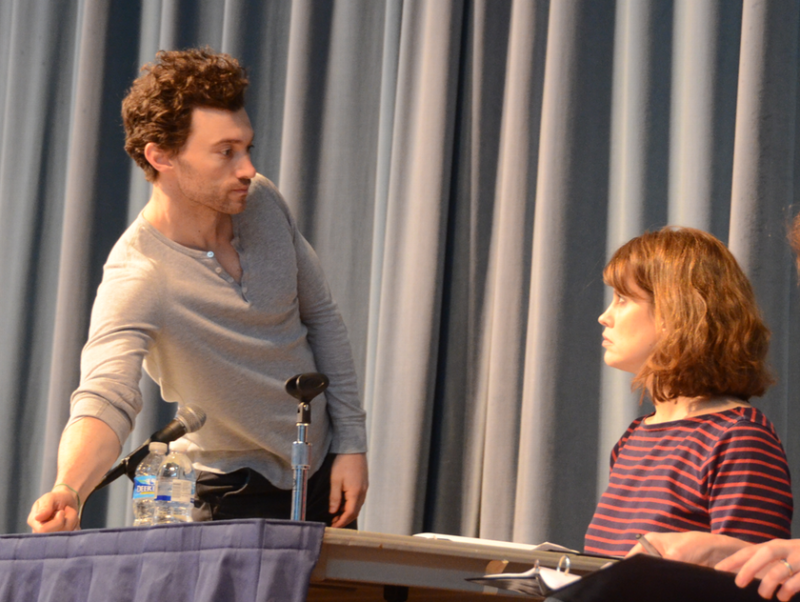Open to Public / Digital Initiative
Book of Job Project at Exodus
About the play
-
The Book of Job by Translated by Stephen Mitchell
The Book of Job is an ancient Hebrew poem that timelessly explores how humans behave when bad things happen to good people. At the beginning of the poem, Job, a righteous and prosperous man, is tested by God. In the span of one day, he loses everything—his children, his crops, his livestock, his house, and his health. Convinced of his own innocence, Job sits silently in the dirt behind what's left of his home and asks God for an explanation. But God doesn't answer. Job is visited by a group of friends who, at first, sympathize with his suffering, but when Job begins to question why he has been singled out and made to suffer, they condemn his behavior and accuse him of having done something to deserve his terrible fate. In spite of these accusations, Job clings to the belief that he has done nothing wrong and continues to shake his fists at the sky in righteous indignation. At the very end of the poem, God reveals himself to Job as a disembodied voice within a whirlwind and rebukes him for presuming to understand His will. Job covers his mouth and falls silent, and—in an enigmatic ending—God restores his health and prosperity, doubling his children, his livestock, and his crops.
Cast Members
-

Jeffrey Wright
Job
-

Kimberly Hèbert
Job's Wife
-

Frankie Faison
God
-

David Strathairn
Bildad, Messenger 1
-

Jumaane Williams
Zophar, Messenger 2
-

David Zayas
Eliphaz, Messenger 3
Explore Projects
-
 Ethics & The Justice SystemTheater of Law
Ethics & The Justice SystemTheater of LawDeveloped with New York University’s Forum on Law, Culture, & Society, and designed as a professional development program for legal professionals, as well as for the general public, Theater of Law drives conversations about moral justice in the court system. The project is aimed at engaging audiences who have in some way been disenfranchised by the law in constructive, powerful dialogue.
-
 GenocideThe Investigation
GenocideThe InvestigationTheater of War Productions and the Museum of Jewish Heritage, in partnership with the National Yiddish Theatre Folksbiene, present readings of scenes Peter Weiss' play The Investigation, a piece of documentary theater adapted from the Frankfurt Auschwitz Trials of 1963-1965. This project centers on guided discussions about mass murder and its lasting impact upon individuals, families, communities, and countries throughout the world. Performed by a diverse cast, including international performers from communities affected by genocide, The Investigation seeks to generate powerful dialogue across cultures and communities about the human capacity for evil, as well as the systems and hierarchies that create the conditions for unthinkable violence.
-
 Domestic ViolenceDomestic Violence Project
Domestic ViolenceDomestic Violence ProjectAddressing the impact of domestic violence on individuals, families, and communities, the Domestic Violence Project premiered in Maine in April 2013 and will be touring all five boroughs of New York City under the current PAIR residency.


